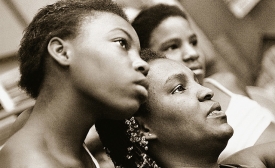brazil
Jamaican Ambassador to Brazil, Her Excellency Alison Stone Roofe, says her embassy staff has already started preparations to capitalize on the 2016 Olympics in Rio de Janeiro.
Brazilian Embassy cultural attache Raphael Tosti de Almeida Vieira has an ace up his sleeve. (...)His ace is Brazilian music. “It’s the Brazilian soft power,” Tosti says of his country’s rich musical heritage that includes internationally beloved genres such as samba and bossa nova.

Although there is a burgeoning literature on South-South development cooperation, this scholarship has seldom considered the public diplomacy surrounding these initiatives. This project addressed this gap by analyzing the public diplomacy channels, practices, and discourses of an emerging South-South cooperation provider in Africa: Brazil.
Winners of the Create & Inspire 2014 competition from Qatar, Saudi Arabia, the UAE and the UK travelled to Brazil last month to experience one of the most colourful cultures in the world, on a creative adventure of a lifetime.
Brazilians are starting to pay attention to a different type of football the one played with the hands. American football, once the sport nobody could understand, is quickly gaining space in the land of soccer, attracting a growing number of fans and participants. Brazil already has two well-established semi-professional leagues in place, and television ratings for the NFL are increasing rapidly.
The acting president of Brazil, minister Ricardo Lewandowski, has enacted a cultural cooperation agreement with Kuwait in Brasília. The action takes place one day after Lewandowski, the president of Brazil’s Supreme Federal Court (STF) met with the Kuwaiti ambassador in Brazil, Ayadah Alsaidi. According to the STF, the agreement enacted Wednesday was signed in 2010 with Kuwait and lays the legal groundwork for cooperation and cultural exchange in fields like literature, cinema, performing arts, visual arts, music, libraries and museums.
The growth trajectory of the biennial is, of course, similar to that of the contemporary art museum and the commercial art fair, and accompanied by similar commentaries about their links to globalization, to imminent saturation of the market and to “instrumental” motives that are only tangentially related to cultural production but umbilically related to tourism, economic development and urban regeneration.
For the leaders of the Brics countries (Brazil, Russia, India, China, andSouth Africa), the announcement in July of their agreement to establish a "New Development Bank" (NDB) and a "Contingent Reserve Arrangement" (CRA) was a public-relations coup.







